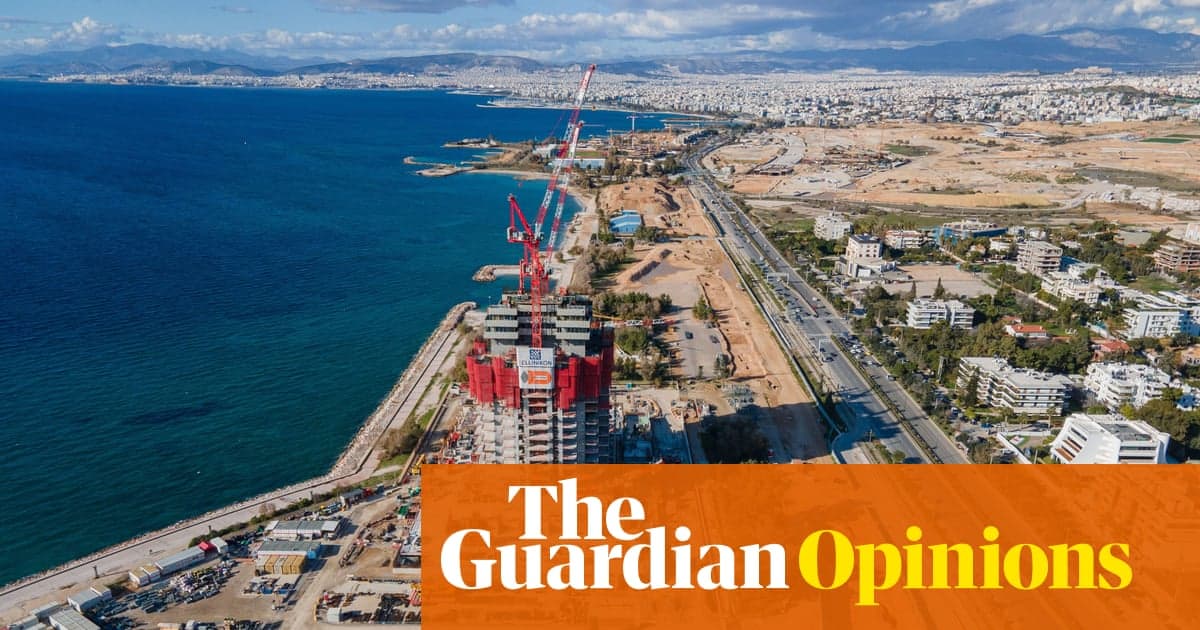Greece is booming again. This time, will it last? | Paul Taylor
Revitalization or Illusion? Greece's Economic Dilemma

Construction has finally commenced on the long-neglected Ellinikon site along the Athens Riviera, just six miles from the iconic Acropolis. This ambitious project promises luxury residences, a towering apartment complex, and the largest shopping mall in Greece. However, questions linger about whether this development signifies a genuine economic revival or merely another fleeting boom in Greece’s tumultuous financial history.
Ellinikon: A Symbol of Hope or Division?
The Ellinikon site, once home to Athens’ airport until 2001, is now poised to transform into a vibrant hub featuring upscale living spaces, hotels, a marina, and various recreational facilities. For the government of Prime Minister Kyriakos Mitsotakis, this development represents a new chapter in Greece’s economic narrative, showcasing the country’s appeal to investors. However, critics argue that Ellinikon serves as a luxury enclave for the wealthy, built on public land and failing to address the stagnation faced by ordinary Greeks.
Historically, Greece has experienced cycles of economic highs and lows. The last significant peak occurred around the 2004 Athens Olympics, when the country was riding high on tourism and economic growth. Yet, this prosperity was short-lived, as the 2009 debt crisis exposed severe financial mismanagement, leading to a series of EU-IMF bailouts that devastated the economy. The fallout resulted in mass unemployment, a significant brain drain, and widespread public discontent.
The Cost of Carbon Compliance Leads the Discussion at the ABS Hellenic National Committee
After years of stagnation, the recent groundbreaking for the Riviera Tower, a 50-floor beachfront complex designed by renowned architect Norman Foster, has reignited hopes for a brighter future. Scheduled to open next year, this project is part of a broader vision for the Ellinikon site, which includes promises of public parks and community spaces. Yet, many Greeks remain skeptical, feeling that the benefits of such developments have not trickled down to the average citizen.
Economic Growth Amidst Persistent Challenges
Despite the optimism surrounding the Ellinikon project, the reality for many Greeks is starkly different. While unemployment rates have decreased, wages and pensions have stagnated, and inflation continues to erode living standards. Public services, including healthcare and education, remain underfunded and inadequate. The recent train collision that claimed 57 lives has further fueled public outrage, highlighting ongoing safety concerns and a perceived lack of accountability from the government.
The 10th Delphi Economic Forum, intended to showcase Greece’s economic progress, was marred by a nationwide general strike protesting low wages and inadequate public services. Mitsotakis, facing declining approval ratings, attempted to highlight Greece’s economic growth, contrasting it with Germany’s austerity measures during the crisis. He emphasized that Greece is no longer the “sick child of Europe,” citing a recent upgrade in the country’s credit rating as evidence of recovery.
However, experts caution that Greece’s economic resurgence is heavily reliant on sectors like real estate, tourism, and shipping, rather than a robust manufacturing base. Critics argue that beneath the surface of positive economic indicators lies a troubling reality marked by social and economic disparities. The concentration of wealth among a few politically connected families and ongoing corruption issues continue to hinder true progress.
As Greece navigates its path forward, the question remains: will the Ellinikon development herald a new era of prosperity, or will it merely mask the enduring challenges that have long plagued the nation? The answer may determine whether Greece can finally break free from its historical cycles of boom and bust.
